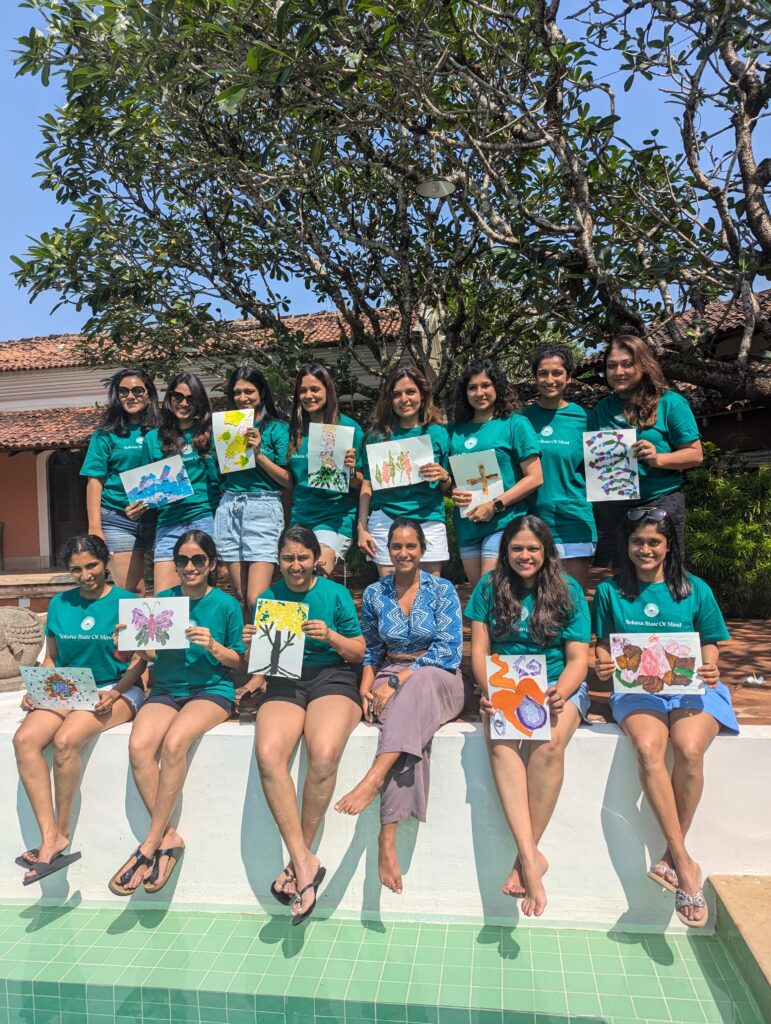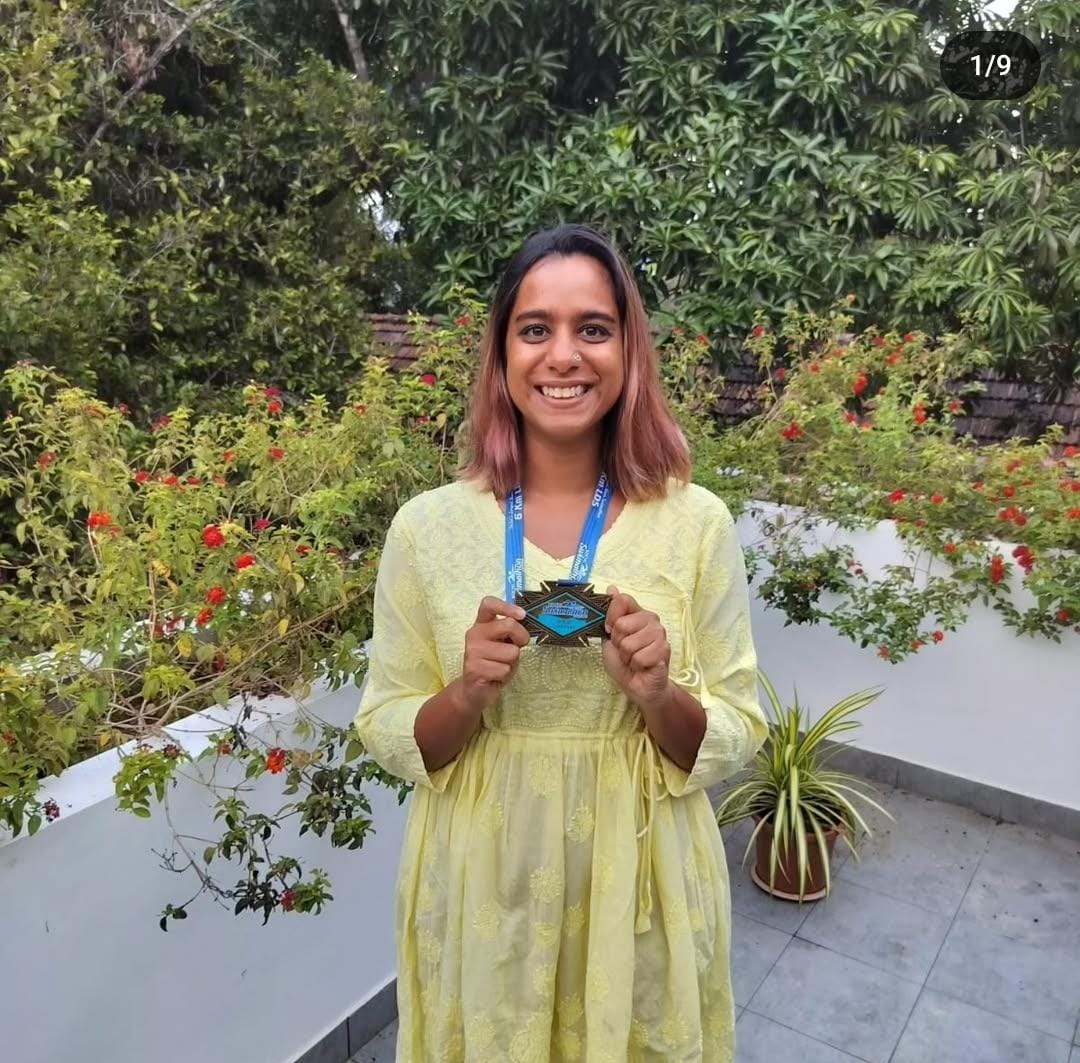
Art, in its many forms, has the power to heal, inspire, and transform. For Arunima Bose, this truth forms the foundation of her career as an expressive art facilitator and art therapist. Her unique journey—from working in the development sector to establishing CONNECT: Creativity Nourishment Studio—is a testament to her passion for fostering emotional growth and well-being through artistic exploration.
A Journey Rooted in Passion and Purpose
Arunima’s path into the world of art therapy was anything but linear. Born with a deep love for art and creativity, she initially pursued a career in the development sector, focusing on women’s literacy and gender issues. However, her inner artist yearned for something more. This desire led her to explore roles in illustration, art facilitation, and managing art festivals across Delhi, Goa, and Bangalore. These experiences helped her build a profound understanding of how art could be a medium for connection and expression.
When the pandemic struck, Arunima found herself compelled to pivot her work. Witnessing the widespread fear, grief, and confusion around her, she transitioned from art facilitation to a more therapeutic practice. This marked the birth of CONNECT: Creativity Nourishment Studio, a safe space where individuals could use art as a tool for healing and growth. Over the past 4-5 years, Arunima has nurtured this practice, evolving her expertise into a powerful blend of art, psychology, and human connection.
Foundations of Expertise
Arunima’s academic background includes a Bachelor’s degree in Psychology and a Master’s degree in Sociology. Additionally, she holds a certification in art therapy from the Indian Council for Professional Education Mission. While these credentials provide a solid foundation, Arunima firmly believes that her 10+ years of work experience have been the true catalyst for her growth as a therapist.
From community-based art projects to working with children and adults, Arunima’s hands-on approach has honed her ability to create meaningful and impactful spaces for healing. She describes herself as a vessel—a channel through which individuals can cope, heal, and grow, becoming more connected to themselves and the world around them.
Art Therapy: A Medium for Healing
Art therapy, as Arunima defines it, uses art as a primary mode of expression to improve mental health and well-being. Unlike traditional talk therapy, it offers a non-verbal outlet for emotions, making it particularly effective for those who struggle to articulate their feelings.
In her sessions, Arunima employs a diverse range of mediums—from watercolors, crayons, and oil pastels to collages and found objects. She also integrates journaling, movement, and breathwork into her practice, ensuring a holistic and well-rounded approach. According to Arunima, each medium evokes different responses, enabling clients to access and release emotions in unique ways.
A Tailored Approach to Therapy
Understanding that every individual’s needs are different, Arunima adopts a flexible and adaptive approach. She begins each session with grounding techniques to help clients center themselves and transition into the present moment. This is followed by the main activity, which addresses the specific challenges or emotions the client wishes to explore. The session concludes with a cooling-down period, allowing clients to rest and reintegrate into their daily lives.
Arunima emphasizes that art therapy is not about creating “good” or “bad” art. Instead, it’s about embracing the process of creation as a means of self-discovery and healing. For clients who may feel intimidated by their lack of artistic ability, Arunima gently reminds them that art therapy is about exploration, not perfection.
Addressing Emotional and Mental Health
Through her practice, Arunima has helped clients navigate a wide range of issues, including grief, trauma, and body image struggles. She recalls a particularly impactful case involving two clients from different backgrounds who were grappling with self-acceptance and body image. Over the course of three months, they used art to explore their emotions, ultimately finding the confidence to embrace their identities and come out to their families.
These transformative experiences underscore the power of art therapy to facilitate deep emotional healing. Arunima believes that by accessing a deeper inner world through artistic exploration, clients can find clarity, self-confidence, and a sense of control over their lives.
Challenges and Ethical Considerations
Like any therapeutic practice, art therapy comes with its own set of challenges. Arunima highlights the importance of dispelling misconceptions about therapy, such as the belief that one must be an artist to benefit from art therapy. She also navigates the ethical considerations of maintaining confidentiality and creating a safe, supportive environment for her clients.
One of Arunima’s greatest strengths is her ability to adapt to the needs of her clients in real time. Whether it’s shifting the focus of a session or addressing unforeseen emotional responses, she remains present and empathetic, ensuring that her clients feel supported throughout their journey.
Building Community and Awareness
In addition to her one-on-one sessions, Arunima is passionate about raising awareness of the benefits of art therapy. She uses her social media platforms to share insights, dispel myths, and encourage people to explore therapy as a tool for personal growth. She also collaborates with NGOs, women’s groups, and educational organizations, bringing art therapy to diverse communities and fostering meaningful connections.
Future Aspirations
Looking ahead, Arunima envisions creating a dedicated studio space where practitioners from various disciplines can collaborate to promote mental health and well-being. Her focus will remain on women’s health and wellness, as well as expanding her practice to include couples’ therapy.
Arunima’s ultimate goal is to empower individuals to become space holders themselves, guiding others toward healing and growth. She believes that the role of art therapy in the mental health field will continue to evolve, offering innovative and accessible ways to address emotional and psychological challenges.
A Conduit for Connection and Growth
For Arunima Bose, art therapy is more than a profession—it’s a calling. Through her practice at CONNECT: Creativity Nourishment Studio, she has created a space where individuals can heal, grow, and connect with their inner selves. Her work serves as a powerful reminder of the transformative potential of creativity, offering hope and clarity to those in need.
As Arunima continues to expand her practice and touch more lives, her journey stands as a testament to the profound impact of art therapy in fostering emotional and mental well-being.


